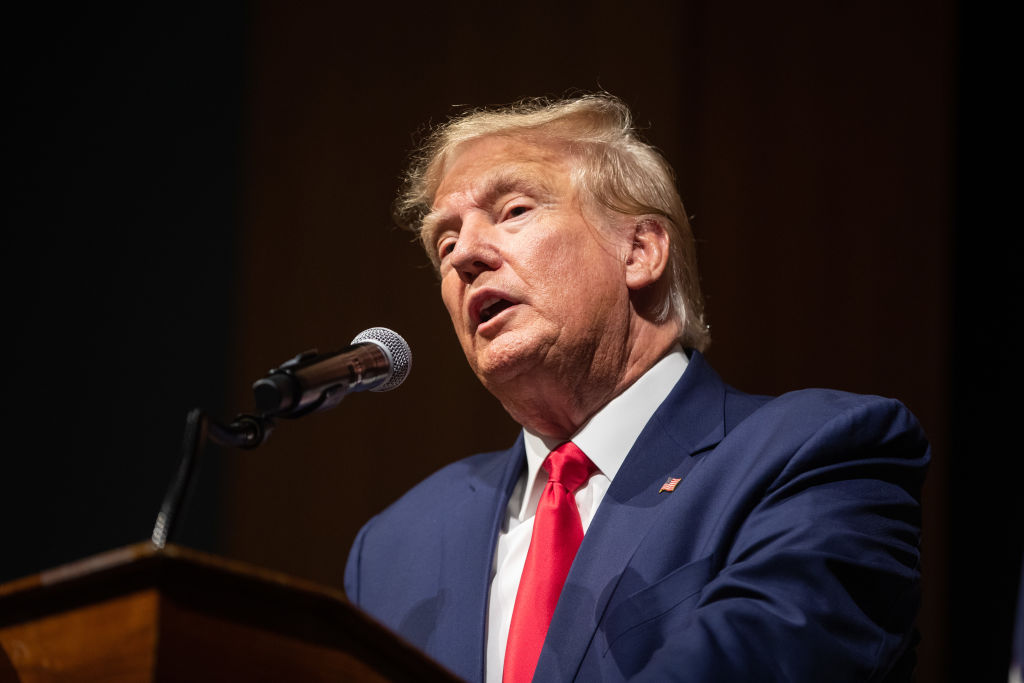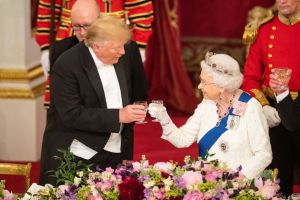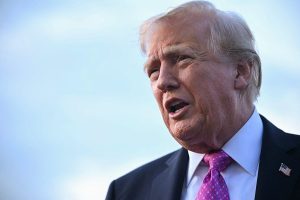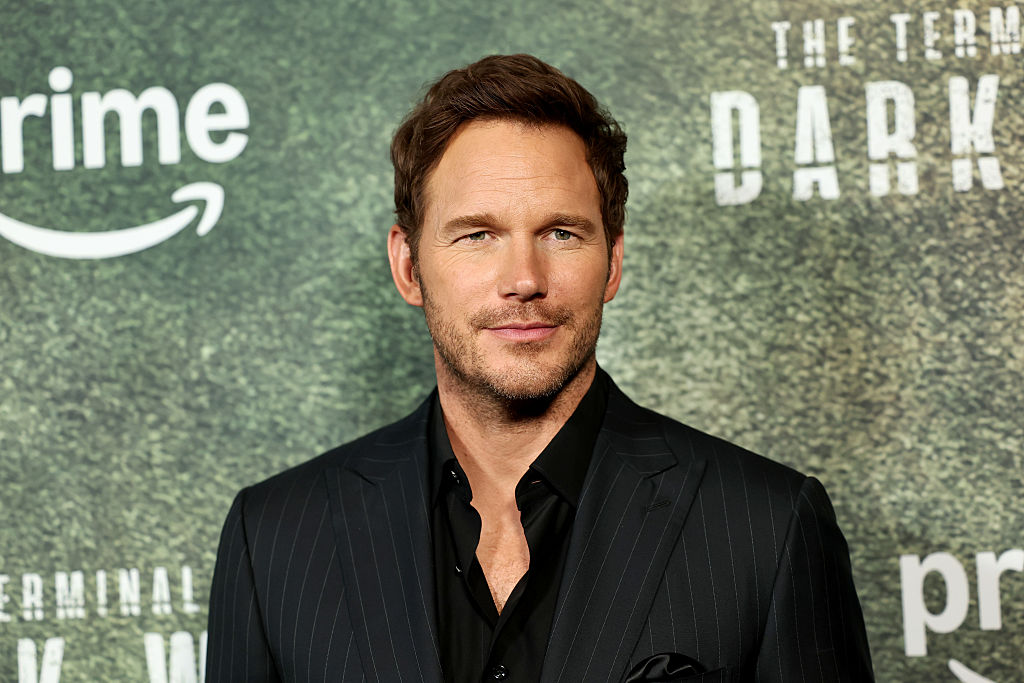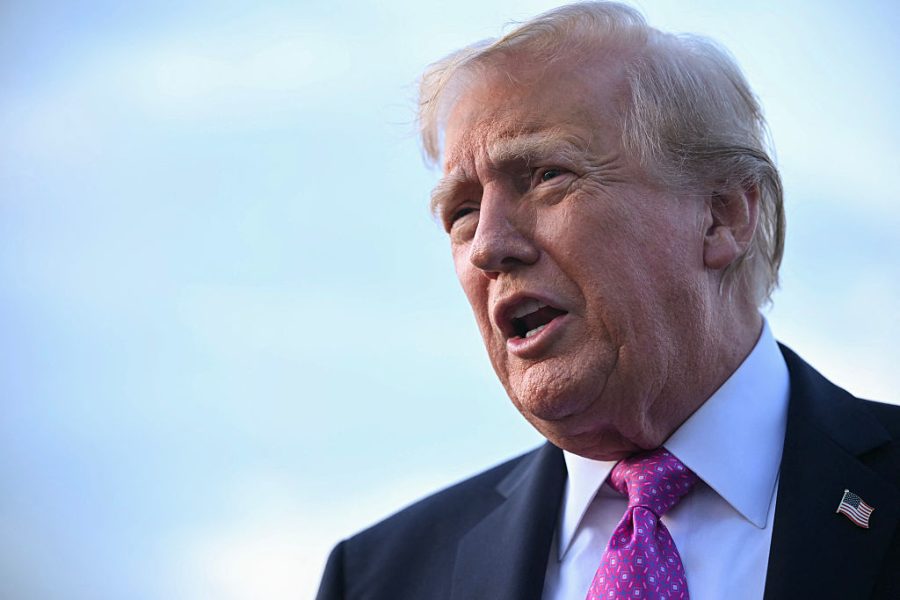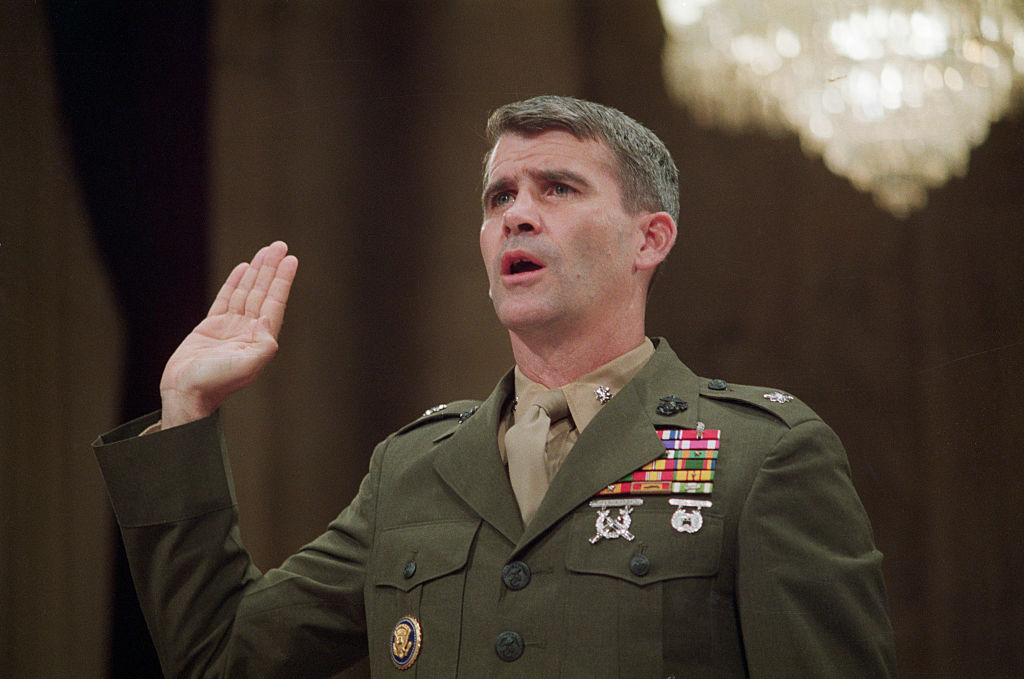The GOP’s foreign policy doves and soft isolationists have grown stronger, with 40 percent of “Republican and Republican-leaning independents” saying the US is giving too much aid to Ukraine. Former president Donald Trump has now taken up the mantle of this movement, firmly anchoring himself to the anti-Ukraine aid faction of the party.
Trump recently gave an interview to radio host Hugh Hewitt in which he made one thing clear: he’s no fan of aiding Ukraine. Asked about sending F-16s, Trump said, “I think the United States should negotiate peace between these two countries, and I don’t think they should be sending very much.” When Hewitt asked if the former president would cut aid to Kyiv, Trump responded, “we’ve got to make peace. …This thing [the war] has to stop, and it’s got to stop now. And it’s not going to stop if we continue to just load something up.” A cryptic answer, but an interpretable one.
The argument here is that the US should push for peace negotiations now, and there is every indication that Trump supports doing so without preconditions, even if it means leaving Ukraine with vast swaths of its territory under Russian control.
Going down this road, however, would be disastrous. It would show revanchist and imperialist powers that aggression, even if it’s costly, pays dividends because the West does not have the constitution to meet the threat. Why would Putin not just reconstitute his forces and take another shot at his neighbors? Why would China not go after Taiwan’s outlying islands, or attempts to take Taiwan itself?
Unlike democratic societies, where the population acts as a check on unnecessary military adventures abroad, there is no such check in authoritarian countries. To be sure, there is a breaking point in every society, but it’s much higher under dictatorships with strong societal control. There will be no frozen conflict in Ukraine. Putin, given the opportunity, will want to avenge his earlier defeats and push on at the first available opportunity. Absent Western support for Kyiv, that opportunity will present itself soon enough.
The most perplexing part of Trump’s comment, however, is that the US supplying aid is prolonging the conflict. The statement itself is half true, but only because if the American supplies ceased, Ukraine’s ability to resist would too, leaving Russia as the victor. Despite the former president’s insinuation that Russia might be willing to “sit down” for peace negotiations if the US had better leadership (him, of course), Moscow would do nothing of the sort. Stopping aid, even paired with the most adept leadership, will only show Putin that his strategy of outlasting the West works.
To be fair to Trump, he did say that “if Russia was not a willing participant [in peace talks],” then he “would have a different mindset.” It is already clear, however, that Russia is not a willing participant. The very fact that the war is reaching its one-year anniversary is evidence enough: if Putin wanted a fair peace, it would have happened months ago. The Kremlin’s demands for peace are unrealistic, being more characteristic of a victorious nation than one that has suffered defeat after defeat. Putin has also proven himself to be a disingenuous interlocutor, lying at every available opportunity and failing to abide by treaties (the INF Treaty, for example). It is folly to believe he would be any different now.
The former president has always had a populist foreign policy streak, but now he has gone all in to solidify the support of his national conservative backers. It has worked out well for him so far. Senator JD Vance recently endorsed Trump’s third run for office in a Wall Street Journal op-ed, praising the former president’s foreign policy restraint. Congressman Jim Banks of Indiana, who is less than a fan of aiding Kyiv, has also endorsed Trump. Admittedly, there are some oddities, such as Senator Lindsey Graham, a noted Ukraine hawk, who recently spoke out in support of Trump. But the former president remains the favorite of the American pull-back caucus.
While foreign policy was no backburner issue in 2016, it seems that Trump and his supporters have elevated it to a new position of prominence. This is concerning not just because of the policy implications but also because of Trump’s ability to recast the GOP’s policy platform. His first term went a long way in undermining the Republican Party’s traditional foreign policy of strong engagement abroad. Nonetheless, he still in practice largely kept the US involved in its key responsibilities, and had multiple hawks (HR McMaster, John Bolton, and Jim Mattis, to name a few) occupying high positions in the administration.
It is much harder to tell if this will be the case in a second term. The Ukraine war may be over by then, but America will still need to exercise strong and steady leadership in world affairs, including consistent engagement with its military obligations. Strengthening the US-led global system after the damage caused by Putin’s invasion will be key to preventing a future Chinese assault on Taiwan. Trump’s soft isolationist sympathies, however, make him poorly suited to play a productive role in this delicate and important act. If those same sympathies seep further into the GOP, the party’s foreign policy credibility could be damaged for decades.



